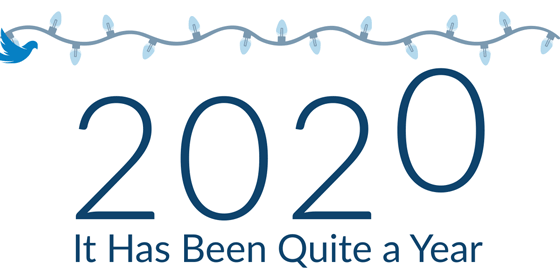Five Key Questions for Your Crisis Plan in 2021

“Bosses may be more willing to try something new during a crisis, opening up new opportunities.”
This insight, reported by the The Economist in an article looking at crisis best practices, is from our own Chris Britton, the Chief Operating Officer of RockDove Solutions, the company behind the In Case of Crisis 365 platform.
 Chris is in a unique position, engaging with a wide array of organizations who deploy In Case of Crisis to make their issues and crisis management quicker and more effective. He shared his insights into what is established best practice and what is changing as organizations plan for 2021 on the back of one of the most difficult years in living memory.
Chris is in a unique position, engaging with a wide array of organizations who deploy In Case of Crisis to make their issues and crisis management quicker and more effective. He shared his insights into what is established best practice and what is changing as organizations plan for 2021 on the back of one of the most difficult years in living memory.
Without divulging information from any individual client, Chris expanded on his contribution to The Economist piece by responding to five key questions as we look ahead to the new year.
Q: What is the single largest factor to consider in a crisis response plan given how difficult the past year proved to be?
BRITTON: You should be prepared to respond quickly with clear accountability, regardless of if the issue is something that results from a miss-step of your own, or something that is tangential. Consumers are exhausted after COVID and the resultant home, work and financial issues, compounded by an aggravated and drawn-out general election. They have little patience for corporate jargon or passing of the buck – both of which are almost immediately blasted by the collective wisdom of the internet, powered by social media. As we inch towards what is being called the ‘next normal’, people want honesty, authenticity, credibility, and empathy from brands. They will forgive you, so long as you do the right thing quickly.
Q: Even as we look beyond COVID in 2021, what will be its biggest impact in crisis planning?
BRITTON: The honest truth is that, aside from organizations in the public health field, such as hospitals, I rarely saw the pandemic scenario identified in a crisis preparedness plan. In March, when COVID shut down much of the country, it rocked everyone – there were no plans and little understanding of what to do next. COVID has not gone away, and it is still a factor in 2021, particularly through the return to work and managing the increasing numbers of people working remotely. Overall, I see our clients now looking more critically at what other threats they might have not addressed in their issue and crisis plans. No-one wants to be taken by surprise again.
Q: What new threats are on the radar for 2021?
BRITTON: It is not much one single threat that is looming, as much as a breathtaking range of issues to anticipate and have preparations in place. 2021 was a record year for hurricanes. There was a huge upswing in cyber-attacks, with vulnerabilities made worse by people working from home outside the security of the office IT network. There is increased scrutiny of everything a company does inside and outside its walls due to the focus and influence of social causes like the #BlackLivesMatter and #MeToo movements. Organizations are expected by consumers to have a position on social issues, which means someone else could be on the other side of the issue and want to square off against you. It has never been more important to have a full assessment of all the reputation and business risks facing your organization and a comprehensive plan to manage all the issues.
Q: What are you seeing in how organizations are using technology differently in 2021?
BRITTON: The internet drives issues and disseminates information so quickly that you have no hope of effectively responding and managing a threat to your reputation unless you, as an organization, deploy your own digital tools. Again, the onset of the global pandemic underlined to many companies how cumbersome paper-based plans and email communication are in a crisis when you need to pivot immediately while engaging with employees, customers and other key stakeholders. We are hearing that a lot from people who are talking to us for the first time.
Q: What changes have you made to your own In Case of Crisis platform to make it more effective in this more challenging environment for organizations?
BRITTON: Even before the pandemic, we spent a long-time planning and then building new tools to expand the capabilities of the platform. The new version, launched in the fall of 2020, is In Case of Crisis 365. Driven by client feedback, who were telling us they needed:
- A way to track a wider array of issues before they became crises
- More features to guide intelligent workflow and team collaboration
- Instant access to legacy information and details of past issues.
Now, in addition to crisis teams and risk managers, we also find ourselves talking to general counsels, HR leaders, marketing and brand managers and many other functions which have a role in coping with the wide array of issues that I talked about earlier.
Q: Finally, what is your message for all those involved in planning issues and crisis preparedness for their organizations in 2021?
BRITTON: I hope you get some rest over the holidays! It has been an exhausting year and while we hope 2021 will be not quite as traumatic, there are a lot of uncertainties and a lot of risk in the world. You have earned a break and quality time with family and loved ones. I would like to add my wishes for everyone to enjoy a happy, prosperous and, most of all, a safe new year.
Learn how hundreds of organizations large and small are using our award-winning issue and crisis management platform, In Case of Crisis, to better prepare for and respond faster to emerging threats.








